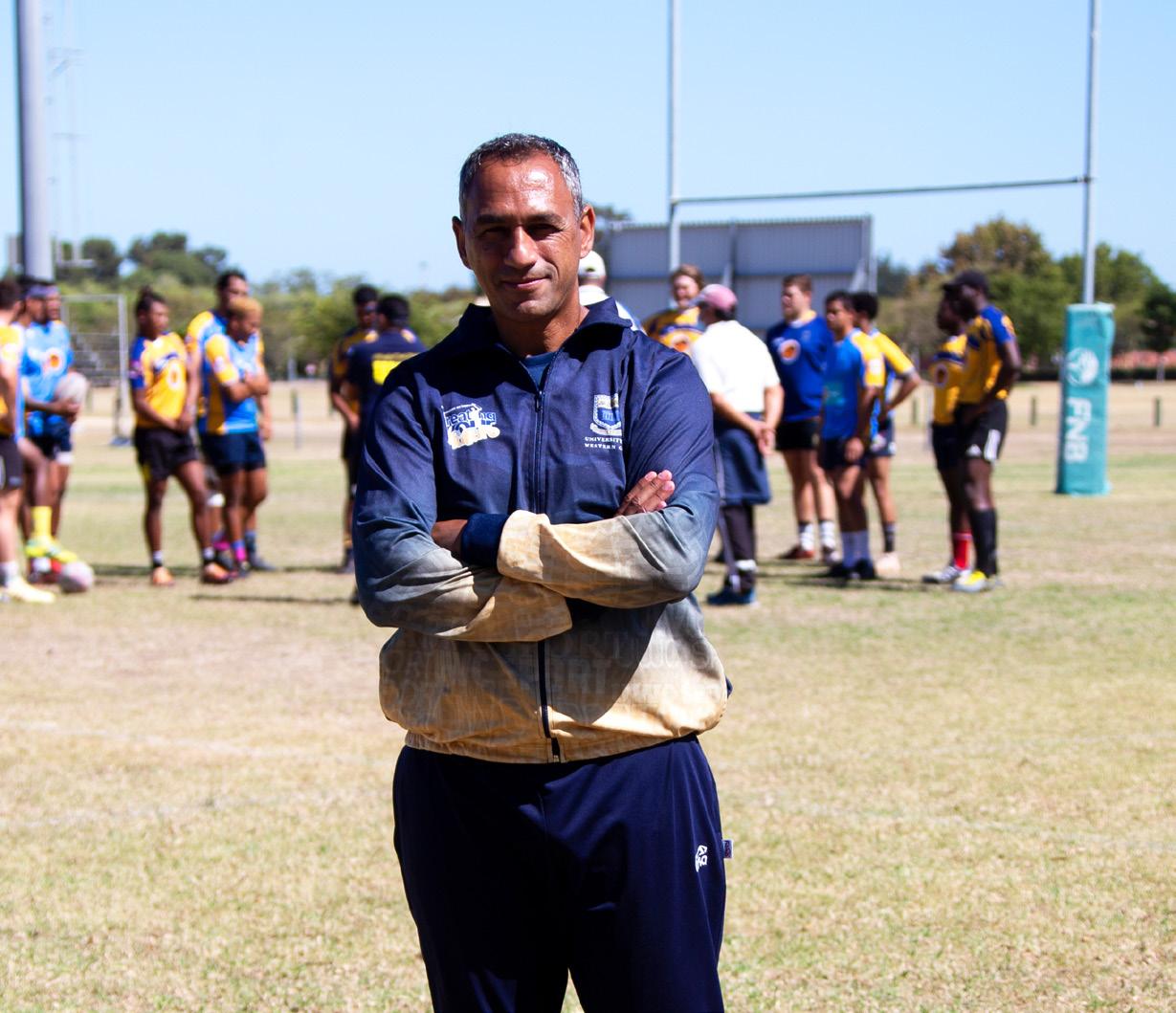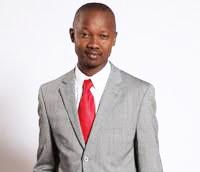
4 minute read
RESHAPING THE CONVERSATION ON CHANGE
Sports transformation is still a long way off in South Africa, say panellists at the UWC Sport Webinar
By Lynne Rippenaar-Moses & Riaan Salie Photography: Peter Herring
While South African sporting codes have been slow to transform, the University of the Western Cape (UWC) has led transformation through sport for years. However, even with UWC’s contribution to developing and producing top sports men and women for South Africa, the playing fields are still not level.
This was the consensus at the 2020 UWC Sport Webinar, hosted by eNCA sport journalist Ronald Masinda, who said that 10 years after the government introduced the Transformation Charter for South African Sport in 2011, transformation in sport is nowhere near where it should be. The charter compels national teams and sports associations and federations to become intentional about transforming their teams, management and support staff or face the consequences of non-compliance.
Masinda opened the webinar by reminding attendees of the late former President Nelson Mandela’s strong belief in the ability of sport to unify South Africans. It was this belief that led to Mandela publicly supporting and encouraging South Africans of all races to embrace and rally behind a yet untransformed South African Springbok team competing in the 1995 Rugby World Cup. The team went on to beat the All Blacks, raising the Webb Ellis Cup with Mandela by their side.
Today, other equality issues also hinder transformation. For panellist Babalwa Latsha, the first black female professional rugby player in South Africa, forging a career in a maledominated sport has been no easy feat. “To be the first in anything is quite daunting because now the responsibility lies on me to set the standard for anyone who comes after me and does the same,” said Latsha. Having taken rugby at UWC as a first-year student, she
UWC Head Rugby Coach Paul Treu was amongst the panellists who joined the webinar
credited the support she received from fellow female athletes and the wider UWC community with helping her develop the steely determination she required to thrive as a female rugby player.
For Thembi Kgatlana, a professional football player, transformation means creating a platform where disadvantaged students can perform at the same level and have access to the same resources as students who started with more advantages at their disposal. Disadvantaged students who want to become athletes, said Kgatlana, seldom have access to the type of diet that is required to maintain a specific level of physical fitness. Nor do they have access to private coaches and off-campus high-performance training opportunities that can help them perform at their optimum. “Disadvantaged individuals are not always aware of what’s needed for professional sports. We just go out in the streets and play sports how we see it,” she said.
According to panellist Ilhaam Groenewald, Chief Director of Maties Sport since 2014 and former sport director at UWC, the transformation of the sporting landscape in South Africa is taking far too long. “I am particularly concerned that the number of athletes at university sport level is dwindling,” she said. “And this is happening because schools no longer prioritise sport, so are therefore not producing athletes.” While university sport is a catalyst for transformation, Groenewald also believes that more remains to be done to ensure sporting codes are inclusive and receptive to female athletes.
Moral and strategic obligations are the most compelling reasons for transformation, added panellist Mandla Gagayi, the current Director for UWC Sport. For Gagayi, transformation starts in the home and upbringing plays a big role in determining whether we can transform or not.
“An enabling environment has not been created for true transformation to take place. One cannot expect athletes to be on the same level if some do not even have training facilities in their communities.
“Our point of departure on the topic of transformation should be that all people are born equal.”
Like Groenewald, Gagayi also touched on the impact that the disintegration of sport at school level has had on university sport. With the culture of sport eroded at government schools, it has become difficult for university sport coaches to motivate for meaningful sport development programmes at these and other schools in disadvantage areas.
Paul Treu, Head Rugby Coach at UWC and another panellist, said that while many reports and policies on transformation exist, there is still a lack of strategic imperative for equal opportunities amongst sports men and women across South Africa. “There are so many talented athletes in these communities, yet so few people of colour progress from provincial sport to national sport levels, and even less appear on our national sport teams.
“This shows a lack of strategic planning in the advancement of transformation in sport,” he added.
“To pursue transformation, our provincial and national teams need strong leaders willing to stand up to corporate sponsors who often try influencing the dynamics in sport teams. Transformation is a process that requires commitment from sport management, athletes and the government. Our country should pursue a transformative experience within sport,” finished Groenewald, sparking debate for a conscious move towards meaningful transformation.

eNCA sport journalist Ronald Masinda hosted the 2020 UWC Sport Webinar Professional footballer and UWC alumnus Thembi Kgatlana also added her voice to the conversation











